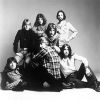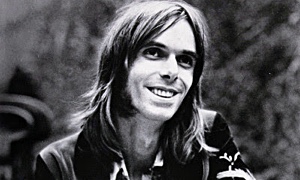Home » Jazz Articles » Film Review » Chicago: The Terry Kath Experience
Chicago: The Terry Kath Experience
 Chicago: The Terry Kath Experience
Chicago: The Terry Kath Experience FilmRise
2018
Michelle Kath Sinclair's The Terry Kath Experience is a combination of history and homage to the her late father, the guitarist and one of the founding members of Chicago. The film proceeds with a streamlined logic, not to mention an abiding sense of love and affection, that nonetheless never turns maudlin.
In part because director Kath, photographer Jordan Levy and co-editors Micah Levin and Tony Papa refuse to digress too deeply into the literal history of the band, it may be somewhat unreasonable to compare this personal approach to Now More Than Ever: The History of Chicago (FilmRise, 2017). Nevertheless, even as the latter strains to assign profundity to a group that, over the course of its evolution, became less not more adventurous, it's more than fair to assume the perspective Sinclair does in positing Terry Kath at the very epicenter of the group's collective creativity. In fact, the flagging nature of the original lineup's once expansive approach had him on the verge of leaving Chicago to form his own band just before his accidental death in January of 1978.
The slightly too-clever but subtle implications in this title-referencing that solo career that never quite happened-belies the somewhat patchwork packaging for the DVD and Blu-ray. Similarly, the garish, Yellow Submarine-style animation featured so prominently at the outset of The Terry Kath Experience is nothing but a distraction from the otherwise strictly linear narrative taking place over the course of the main ninety-minutes: given that the germination of this film lies in Michelle's discovery of personal effects and includes a wealth of self-made film footage otherwise used so effectively elsewhere here, those aforementioned graphics are especially intrusive.
But that's in part because the bulk of the film is so deeply riveting. In fact, it's a mark of brilliance to insert the dramatic element of Michelle's search for Terry's signature guitar as an understated storyline that ultimately comes to emphatic conclusion. The restrained application of that theme also helps maintain the flow of the story, especially when, at the moment of the instrument's recovery, the filmmaker brings overall closure to this chronicle of a great musician.
Prior to that sequence, the presence of Michelle's mother and her inimitable candor brings a realism to The Terry Kath Experience that's further nurtured by interviews with the man's bandmates. It helps immeasurably too that interviews with Chicago's bassist/vocalist Peter Cetera and drummer/percussionist Danny Seraphine play such prominent roles here: their segments not only illuminate Terry Kath's personality, but his relationship with this pair and the other members of the group (who acquit themselves with much more honor and grace than in their own self-produced documentary).
Likewise, multiple snippets of conversation with guitarist Joe Walsh ( James Gang, Eagles) adds credence to the perception of Terry Kath as an undeservedly under-recognized talent. An almost imperceptible motif running through this film, that thread gains even more credibility when it's played off against the other aspects of the subject's life, as a husband and father as well as a rollicking rock star. So, as Michelle Kath Sinclair shares her visit to the Caribou Ranch, where Chicago lived and worked so prolifically early in their career (under the tutelage of the circumspect James William Guercio), her presence beside the love of her dad's life (and to a slightly lesser extent, personnel of the Colorado complex itself) brings a bittersweet finale to The Terry Kath Experience.
As genuinely touching as most of that which precedes it, these moments set up the half-hour plus of bonus footage as something akin to an encore the likes of which Terry Kath led for Chicago in its concert heyday.
Tags
About Chicago
Instrument: Band / ensemble / orchestra
PREVIOUS / NEXT
Support All About Jazz
 All About Jazz has been a pillar of jazz since 1995, championing it as an art form and, more importantly, supporting the musicians who make it. Our enduring commitment has made "AAJ" one of the most culturally important websites of its kind, read by hundreds of thousands of fans, musicians and industry figures every month.
All About Jazz has been a pillar of jazz since 1995, championing it as an art form and, more importantly, supporting the musicians who make it. Our enduring commitment has made "AAJ" one of the most culturally important websites of its kind, read by hundreds of thousands of fans, musicians and industry figures every month.

























